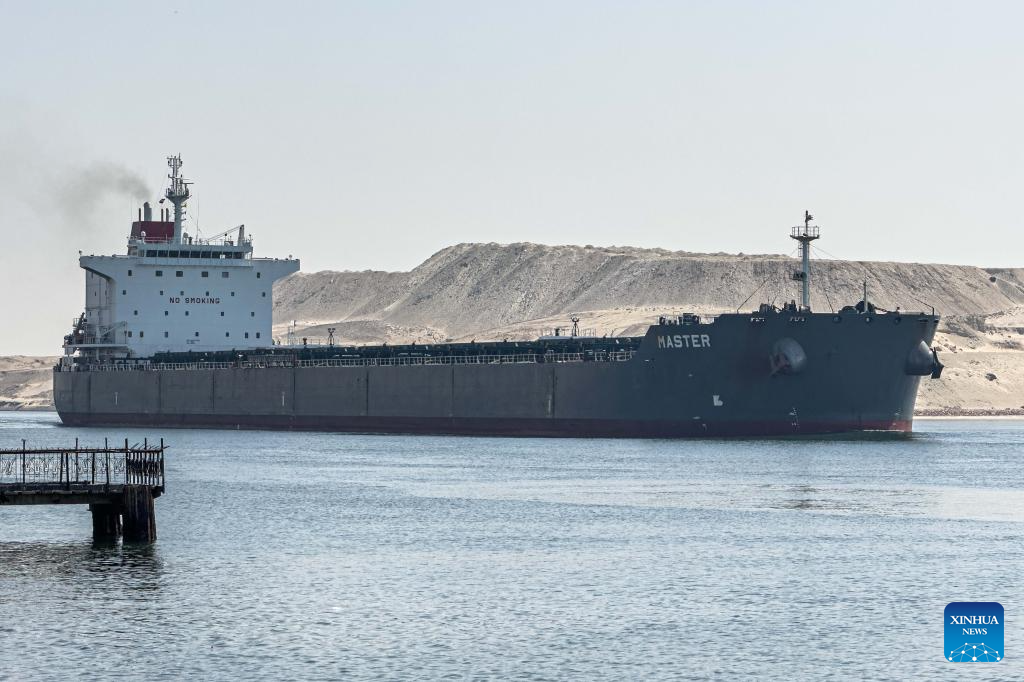
A ship sails on the Suez Canal in Ismailia Governorate, Egypt, July 13, 2024. (Xinhua/Ahmed Gomaa)
by Marwa Yahya
CAIRO, July 12 (Xinhua) -- Revenues from Egypt's Suez Canal have been significantly slashed due to the rerouting of international shipping to avoid the risk of Yemeni Houthi attacks in the Red Sea.
The canal, carrying 12 percent of global trade, is a crucial source of foreign currency for Egypt, a country still grappling with persistent economic woes.
The transit receipts of the Suez Canal registered a staggering 57.2-percent year-on-year decrease to 959.3 million U.S. dollars in the first quarter of 2024, or the third quarter of fiscal year 2023/2024 starting July 2023, according to a statement released Monday by the Central Bank of Egypt (CBE).
The statement said the canal's transit receipts stood at 5.8 billion dollars in the first nine months of fiscal year 2023/2024, compared to 6.2 billion dollars during the same months of the previous fiscal year.
In the same period, the net tonnage declined by 15.6 percent to 944.9 million tons, with the number of transiting vessels down by 11.5 percent, added the central bank.
"These decreases stemmed primarily from the Red Sea traffic disruptions, which forced several commercial shipping companies to reroute their vessels," the CBE statement noted.
Since last November, Yemen's Houthi group has repeatedly attacked ships in the Red Sea that it said have links to Israel to show solidarity with Palestinians under Israeli attacks in the Gaza Strip.
As the Houthi attacks continue, traffic in the Suez Canal will be constantly hindered, which could further worsen Egypt's economic hardships, said Waleed Gaballah, a member of the Egyptian Association for Political Economy, Statistics, and Legislation.
International shipping giants, including Maersk, Hapag-LIoyd, Evergreen Line, and Mediterranean Shipping Company, have rerouted some of their vessels around South Africa's Cape of Good Hope instead of the Suez Canal for safety concerns.
In June, Maersk stated, "To safeguard our crew, vessels, and customers' cargoes, we have continued to sail around the Cape of Good Hope, adding approximately 4,000 miles to the total voyage length, resulting in longer voyage time and higher operational expenses."
"Currently, we are experiencing an average 40 percent increase in fuel costs compared to when we sail through the Red Sea and Gulf of Aden," Maersk added.
In addition to global shipping giants, local businessmen also suffered from the Red Sea crisis.
Khaled Tony, who imports heavy printing machines from Asian countries, said his business was affected significantly.
Tony complained that he had to transport lightweight equipment by air at high costs, while maritime shipping taking longer routes also produces high transport and insurance costs.
"I signed contracts with many factories last year, but I couldn't deliver their orders in due time and had to pay penalties for not fulfilling the contracts," he told Xinhua.
Also, local people relying on the canal to support families were frustrated by the sharp decline in shipping and port businesses, as "the Suez Canal provides a major source of income for many families living along the canal," said 60-year-old Samar Hamed, a canal resident.
To win back the shippers, Egypt's Suez Canal Authority (SCA) has extended incentives, including an up to 75 percent reduction in normal transit fees for vessels until the end of the year. Notably, the SCA announced last October a decision to raise transit fees by 5 to 15 percent starting on Jan. 15, 2024.
However, as SCA Chairman Osama Rabie ever said, the security concern to shippers could not be easily overcome with discounts or other incentives offered by the canal. ■
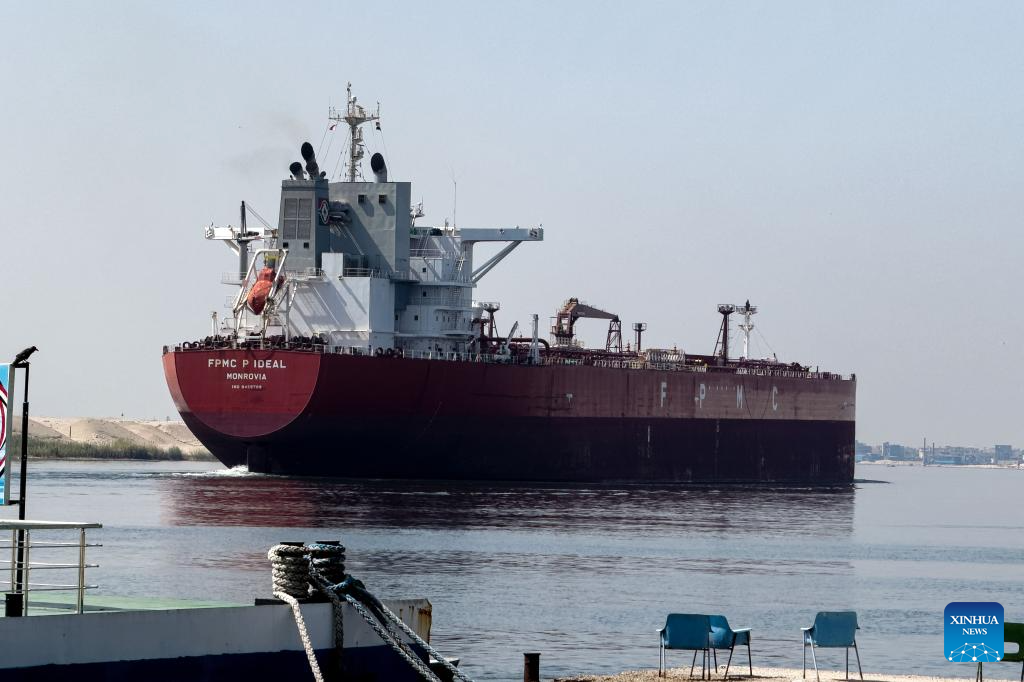
A ship sails on the Suez Canal in Ismailia Governorate, Egypt, July 13, 2024. (Xinhua/Ahmed Gomaa)
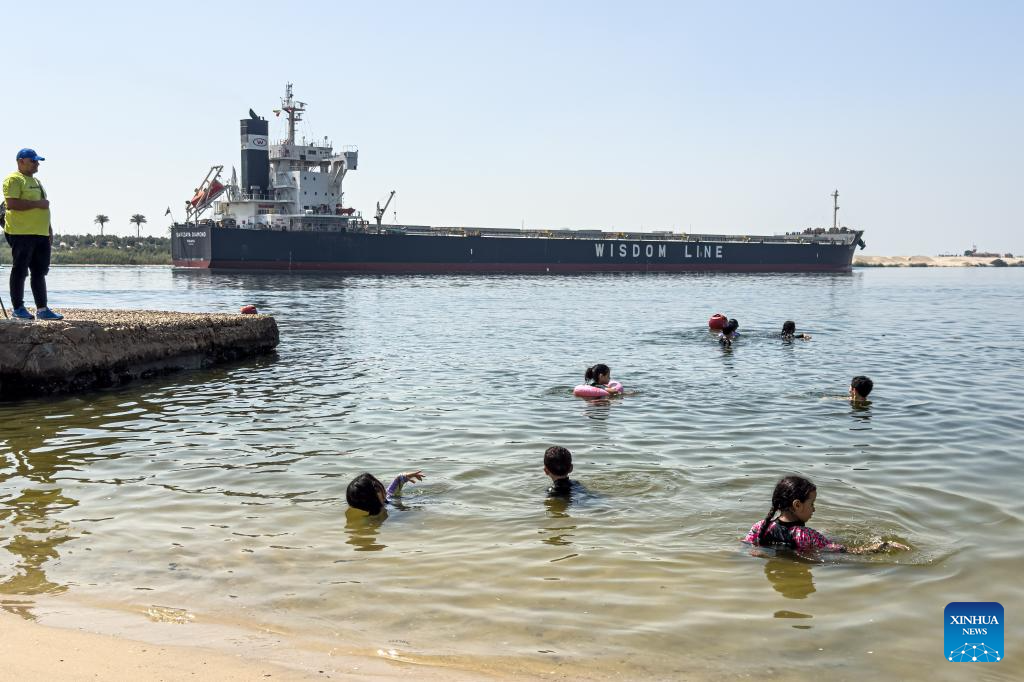
A ship sails on the Suez Canal in Ismailia Governorate, Egypt, July 13, 2024. (Xinhua/Ahmed Gomaa)
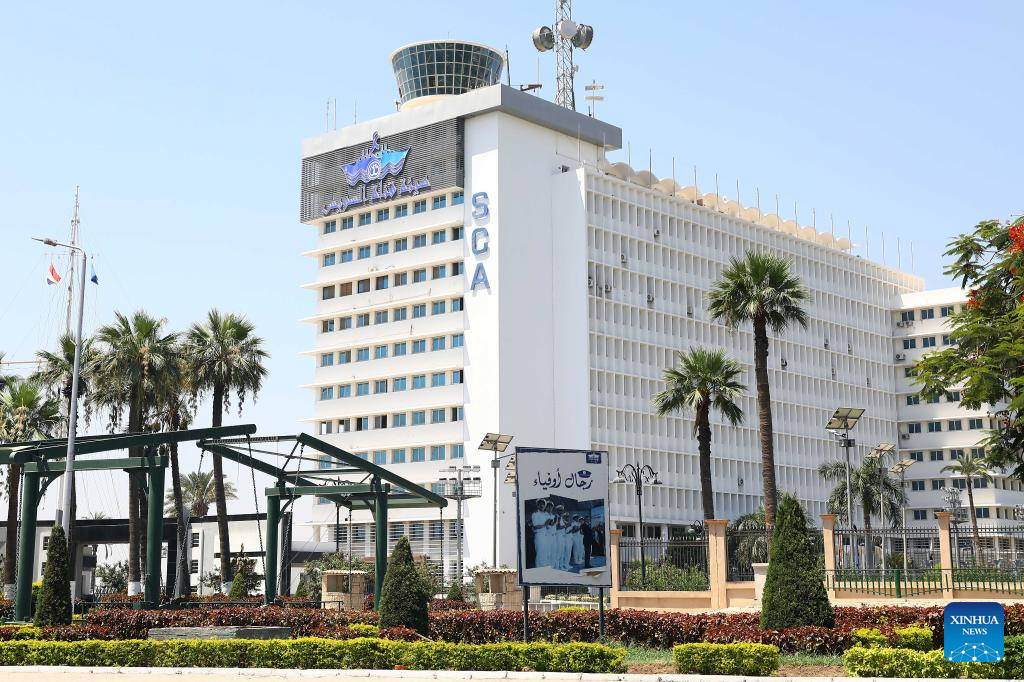
This photo taken on July 13, 2024 shows the Suez Canal Authority (SCA) building in Ismailia Governorate, Egypt. (Xinhua/Ahmed Gomaa)
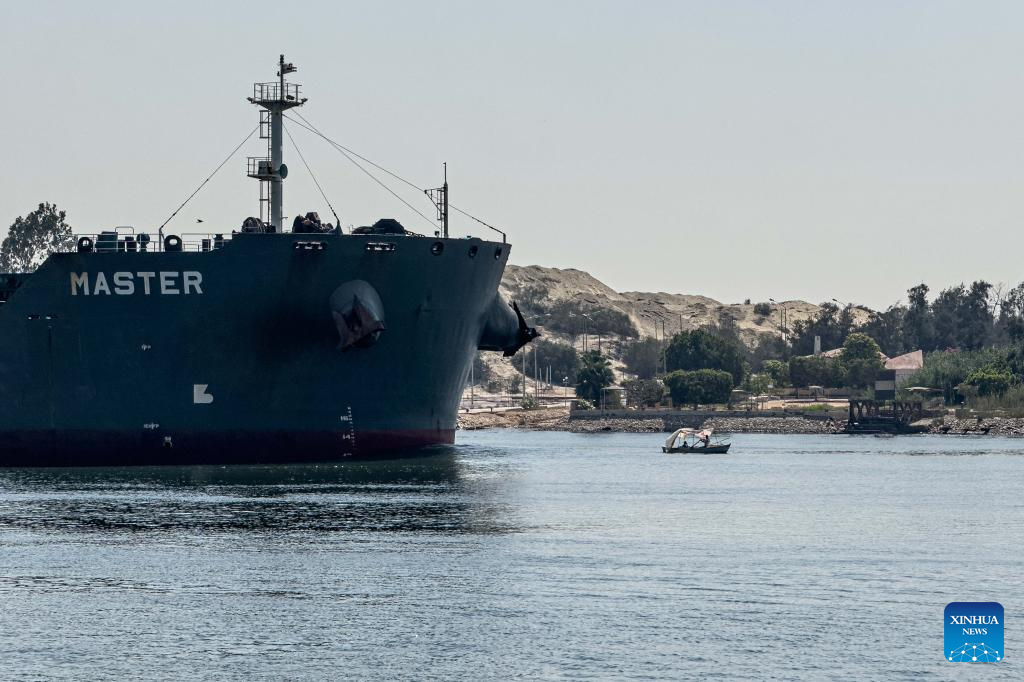
A ship sails on the Suez Canal in Ismailia Governorate, Egypt, July 13, 2024. (Xinhua/Ahmed Gomaa)



